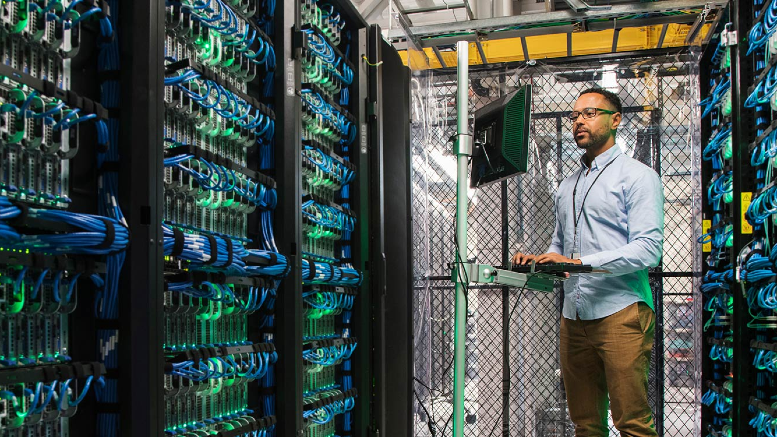Melhorando a experiência do serviço de atendimento com recursos de próxima geração
abril 24, 2025 / Aron Meyer
Pouco tempo? Leia as principais conclusões:
- Os balcões de serviço modernos agora impulsionam a produtividade e a agilidade do negócio além da solução básica de problemas de TI
- A implementação eficaz da IA melhora as capacidades humanas em vez de substituir a equipe de suporte
- O Service Experience Accelerator combina IA com experiência humana onde as pessoas se destacam
- Os sistemas de melhoria contínua do conhecimento identificam lacunas e sugerem melhorias direcionadas
- As ferramentas de aumento de agentes apresentam informações em tempo real para melhorar a velocidade e a qualidade do suporte
Quando você entra em contato com um agente para obter suporte de TI, quão satisfeito você está com essa experiência?
De acordo com o CX Index, 90% das empresas, independentemente da vertical em que operam, declararam que fizeram da experiência do cliente seu foco principal. Por que, então, a percepção do consumidor diminuiu por três anos consecutivos? Isso sugere que as expectativas dos consumidores estão aumentando mais rápido do que a capacidade das empresas de atendê-las usando métodos e tecnologias tradicionais.
Esse mesmo desafio existe no suporte no local de trabalho. Os balcões de serviço evoluíram para além da solução básica de problemas de TI para se tornarem impulsionadores vitais da produtividade dos funcionários e da agilidade do negócio. À medida que as organizações adotam a IA, a automação e a análise inteligente, o serviço de atendimento tradicional está evoluindo para atender às expectativas crescentes.
A IA é importante?
A Internet tornou-se pública em 1993. Dois anos mais tarde, a Amazon começou a vender livros online. Demorou cinco anos até podermos pesquisar com o Google. Passaram dez anos antes do MySpace Tom nos cumprimentar nas redes sociais, com o Facebook chegando um ano depois. O iPhone trouxe a Internet para os nossos bolsos 14 anos depois de a web se tornar publicamente disponível — e agora, poucos de nós podem funcionar sem ela. Apesar de todas as nossas ambições e aspirações, leva tempo para que as novas tecnologias realizem todo o seu potencial.
A OpenAI lançou seu chatbot generativo baseado em IA, ChatGPT, em 30 de novembro de 2022. Embora o mundo ainda esteja começando essa jornada de IA, publicitar sobre o uso da IA hoje é como publicitar que você usa a Internet — ela está rapidamente se tornando uma ferramenta padrão em vez de um diferenciador. Como seria estúpido hoje ver um anúncio que dissesse, "Netflix: Alimentado pela Internet!" Para o cliente ou usuário final, não é realmente a IA que importa. É o que você está fazendo com ele para servir seus clientes, funcionários e comunidades que é significativo e poderoso.
Quando alguém pesquisa no Google, faz compras na Amazon, gosta de uma foto no Instagram ou paga uma fatura com o aplicativo móvel de seu banco, ele não está pensando na Internet. Eles estão apreciando o valor do serviço que as empresas estão fornecendo. Da mesma forma, o uso da tecnologia de IA deve se concentrar em agregar valor em vez de simplesmente adotá-la por sua própria causa.
A experiência humana: As pessoas no centro da IA
Assim como a infraestrutura de canalização confiável torna possível o fornecimento de água, a IA funciona melhor quando é projetada cuidadosamente com as pessoas em mente. Não é o ato de usar a IA que magicamente cria melhores experiências do cliente ou melhora o serviço. O oposto pode acontecer se você não priorizar as pessoas no centro.
Vimos isso em ambientes de serviço — chatbots que mal entendem solicitações urgentes, sistemas automatizados que criam ciclos infinitos de frustração ou assistentes virtuais que oferecem conselhos tecnicamente corretos, mas praticamente inúteis. A implementação da IA não deve ser uma corrida para eliminar o envolvimento humano. Em vez disso, deve dar aos profissionais de serviço capacidades aprimoradas e criar experiências de suporte que só são possíveis através dessa colaboração.
Esse equilíbrio é essencial porque a IA tem pontos fortes e limitações claros. A IA é excelente na análise de dados para identificar padrões, fazer previsões e automatizar tarefas repetitivas. Também é bom no processamento de idiomas para tarefas de tradução, resumo e análise de sentimento. No entanto, a IA não é boa em raciocínios complexos ou tarefas de bom senso. Também tem dificuldade em se adaptar a novos cenários, compreender situações nuanceadas ou mostrar genuína empatia e inteligência emocional. Grandes experiências do cliente exigem todos esses elementos — eficiência tecnológica combinada com compreensão humana.
A revolução silenciosa no apoio: Acelerador de Experiência de Serviço
Com base nessa compreensão dos pontos fortes e limitações da IA, o Unisys Next-Generation Service Desk alavanca nosso Service Experience Accelerator (SEA) para transformar a prestação de suporte combinando capacidades de IA com experiência humana. Essa estrutura desenvolvida pela Unisys cria uma experiência mais fluida e eficiente através de:
Melhor interação com o cliente
- Suporte conversacional que fornece respostas rápidas e orientação sem filas
- Tradução em tempo real em canais de chat e voz para suportar mais idiomas
- Automação pré-construída para ações de rotina que coloca os funcionários de volta ao trabalho mais rapidamente
Ferramentas de aumento de agente
- Agente Copilot revela conhecimento relevante durante as interações, mantendo os agentes engajados com os clientes
- Os recursos automatizados de conformidade fornecem listas de verificação visuais em tempo real para cada tipo de consulta
- Resumos automáticos de conversas melhoram a documentação, reduzindo o tempo de manuseio
Melhoria contínua do conhecimento
- As equipes de gerenciamento de qualidade analisam quase todas as interações usando análise de sentimento
- A ferramenta de curadoria de conhecimento identifica lacunas entre artigos existentes da base de conhecimento e etapas reais de resolução
- Cria um ciclo contínuo que melhora o autoatendimento e o suporte assistido por agente
Essa abordagem oferece o que mais importa: melhores experiências para funcionários que procuram ajuda, resultados expandidos para o negócio e vidas de trabalho melhoradas para profissionais de serviços — tudo ao encontrar o equilíbrio certo entre tecnologia e experiência humana.
Olhando o futuro: A evolução do suporte
O serviço de atendimento continua a evoluir além de suas fronteiras tradicionais. À medida que as capacidades de IA amadurecerem, veremos sistemas de autocura mais inteligentes e experiências de suporte que se adaptam às preferências e padrões de trabalho individuais.
Organizações com visão de futuro reconhecem essa mudança da resolução reativa de problemas para a capacitação proativa. Quando os problemas tecnológicos são resolvidos mais rapidamente — ou totalmente evitados — os funcionários alcançam mais, os profissionais de apoio se concentram em trabalhos de maior valor e as empresas operam com maior segurança e eficiência. A Unisys se compromete a liderar essa transformação por meio de nossa abordagem Next-Generation Service Desk, ajudando as organizações a se prepararem para o que vem a seguir no suporte ao local de trabalho.
Entre em contato conosco ou visite nosso site para saber como experimentar a próxima geração de suporte de serviço com o Unisys Next-Generation Service Desk, impulsionado pelo Unisys Service Experience Accelerator.


















